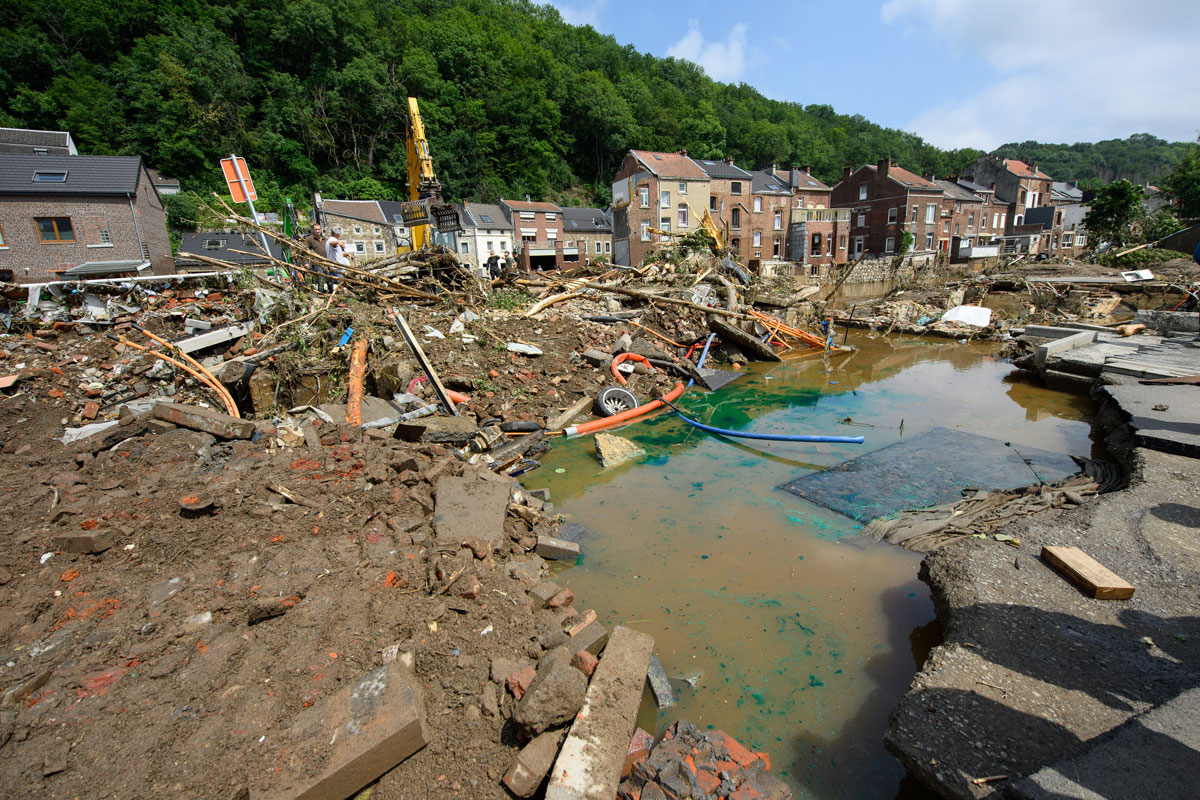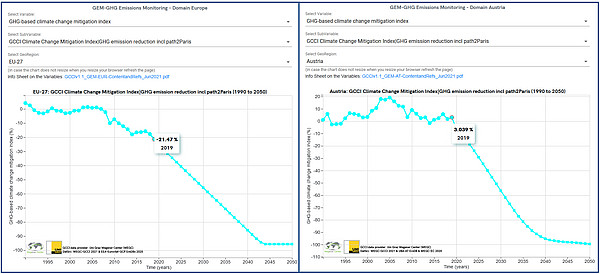The heat waves of recent weeks, interrupted by severe weather events with heavy rain and hail as well as the associated floods and major damage across Europe have shown that climate change is on indeed. The University of Graz has now put a new data portal online that displays informative indicators on greenhouse gas emissions and climate change, the so-called “Graz Climate Change Indicators” (GCCI), over the recent decades as well as looking ahead until mid-century.
"This portal not only offers reliable monitoring information for the period from 1960 to 2020 for Austria, Europe, and globally, but also presents future scenarios up to 2050 that are based on the Paris climate goals," says climate researcher Gottfried Kirchengast from the Wegener Center at the University of Graz who designed the GCCI concept and implemented it together with his project team. In the first version, there is a focus on greenhouse gas emissions, which can be readily viewed for Austria and its federal states and as well for the EU and the countries of Europe and the world. “For example, we are showing a GCCI Climate Change Mitigation Index that depicts the necessary reduction in emissions in Austria on the way to climate neutrality by 2040. Through regular updating and extension by short-term predictions, and the possibility of global inter-comparison, these indicators can be a very valuable addition to the official national monitoring,” explains Kirchengast.
Another focus are indicators of global climate warming, such as the increase of the heat content in the atmosphere and oceans as well as the critical Earth energy imbalance due to continued greenhouse gas emissions. “In this way we are also making key results of our own climate research in Graz widely accessible. For example, using the GCCI Global Warming Index, we track the atmospheric heat increase since 1990, which we discovered last year to occur at an unexpected strength and for which further important results are in the pipeline,” describes Kirchengast. As a third focus, climate change indicators on the development of weather and climate extremes will be added later in the course of 2021.
The portal is publicly accessible at gcci.uni-graz.at and is regularly updated. In addition, the University of Graz has developed a solution framework for effective climate protection with its “Carbon Management” program, which empowers actors at all public, institutional and personal levels to make their own fair contribution to reducing greenhouse gas emissions in line with the Paris climate goals. The GCCI data provide important context information for this and are therefore closely linked to the Carbon Management platform carbmanage.uni-graz.at.
The work of the Wegener Center is part of the Field of Excellence “Climate Change” of the University of Graz and made also important contributions to the Intergovernmental Panel on Climate Change (IPCC) Sixth Assessment Report on the physical science basis of climate change that is upcoming soon in August 2021.

